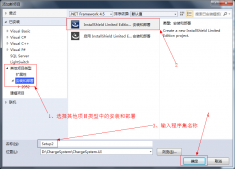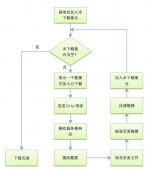容器类、正则表达式在几乎所有编程语言都存在的东西。很常用也很使用。下面用如下的一个控制台小程序说明C#的正则表达式与容器类的应用。
开始直接输出在C#定义好的数据字典Dictionary,这就是Java与Python的HashMap,之后定义一个存int的List,让用户无限输入这个List的元素,输入到#则停止输入,在输入的过程中遇到不是纯输入,则拒绝这个输入。
遍历这个List输出,之后利用C#的另一个容器HashSet为这个List去重。

这个程序的代码如下,其实以上所有的东西都在以前的文章说过。这主要是将这种思想写成C#语言而已。
关于正则表达式可以参考:《js利用正则表达式检验输入内容是否为网址》
关于利用HashSet为List去重:《Java中ArrayList的使用方法简单介绍》
|
1
2
3
4
5
6
7
8
9
10
11
12
13
14
15
16
17
18
19
20
21
22
23
24
25
26
27
28
29
30
31
32
33
34
35
36
37
38
39
40
41
42
43
44
45
46
47
48
49
50
51
52
53
54
55
56
57
58
59
60
61
62
63
64
65
66
67
68
69
70
71
72
|
using System;using System.Collections.Generic;//用到了容器类using System.Text.RegularExpressions;//用到了正则表达式class Collections{ //C#容器Dictionary的基本使用 public static void dictionaryTest() { Dictionary<string, int> dict = new Dictionary<string, int>(); dict.Add("K1", 123); dict["K2"] = 456; dict.Add("K3", 789); Console.WriteLine("数据字典dict中的Key-value对为:"); foreach (KeyValuePair<string, int> k in dict) { Console.WriteLine("{0}-{1}; ", k.Key, k.Value); //K1-123; K2-456; K3-789; } } //C#容器List与HashSet的基本使用 public static void listTest() { List<int> list = new List<int>(); Console.WriteLine("输入#,结束输入!"); Regex regex = new Regex("^[0-9]*$"); String input_string = ""; while (true) { Console.Write("请输入数组的数字:"); input_string = Console.ReadLine(); if (input_string.Trim().CompareTo("#") == 0) { break; } else { if (regex.IsMatch(input_string))//利用正则表达式判断是否输入的是数字 { list.Add(int.Parse(input_string)); } else { Console.WriteLine("输入的不是数字!请重新输入!"); } } } Console.WriteLine("输入的List为:"); for (int i = 0; i < list.Count; i++) { Console.Write(list[i] + " "); } Console.WriteLine(); list = new List<int>(new HashSet<int>(list));//利用集合为list去重 Console.WriteLine("List利用Set去重后为:"); for (int i = 0; i < list.Count; i++) { Console.Write(list[i] + " "); } Console.WriteLine(); ; } public static void Main(String[] args) { dictionaryTest(); listTest(); Console.ReadKey();//等待用户按回车才结束程序 }} |
以上就是本文的全部内容,希望对大家的学习有所帮助,也希望大家多多支持服务器之家。















